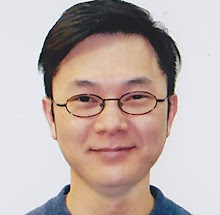Milton Friedman wrote this book in 1980. Although I obtained an economics degree more than 10 years ago, I am nothing compared to the Nobel Prize-winning economist Friedman. For more on Free to Choose, please visit http://www.freetochoose.com
_________
It is always believed that "the more the better." Why is that? Because people are greedy. They won't get satisfied easily. They always want to get the most out of everything. They won't stop until they make sure that nothing more can be gained by further sucking.
So, more is better? How about less is better?
People like to choose when dealing with serious issues, but they don't like to be bothered with minor tasks such as whether to eat at night. Why is that? Time is the reason. Everyone has the same 24-hour, which makes time the only fair resource available. Smart people spend time on important issues but not necessary urgent. Dumb people spend time doing nothing and mostly on unimportant and non-urgent tasks which generate no value at all. This is in fact the urgent / important time management matrix.
An optimal time management has below guideline.
- non-urgent, unimportant tasks: IGNORE
- urgent, unimportant tasks: DISCOURAGE
- important, non-urgent tasks: DEVELOP ACTION PLANS
- urgent, important tasks: TAKE IMMEDIATE ACTION
This is an important point to note, because this is about meeting expectations, and expectations are directly related to satisfaction. Satisfaction equals Experience minus Expectations. Experience includes reality, outcome, performance.
As a general rule, more is better when people encounter urgent and important tasks, and less is better when people deal with non-urgent and unimportant tasks.
In Chinese, there is the idea of "enough is enough." People should be content with enough, or just right.
In order to deliver compelling touchpoint experience, it is important to know what and when is just right.
_________
It is always believed that "the more the better." Why is that? Because people are greedy. They won't get satisfied easily. They always want to get the most out of everything. They won't stop until they make sure that nothing more can be gained by further sucking.
So, more is better? How about less is better?
People like to choose when dealing with serious issues, but they don't like to be bothered with minor tasks such as whether to eat at night. Why is that? Time is the reason. Everyone has the same 24-hour, which makes time the only fair resource available. Smart people spend time on important issues but not necessary urgent. Dumb people spend time doing nothing and mostly on unimportant and non-urgent tasks which generate no value at all. This is in fact the urgent / important time management matrix.
An optimal time management has below guideline.
- non-urgent, unimportant tasks: IGNORE
- urgent, unimportant tasks: DISCOURAGE
- important, non-urgent tasks: DEVELOP ACTION PLANS
- urgent, important tasks: TAKE IMMEDIATE ACTION
This is an important point to note, because this is about meeting expectations, and expectations are directly related to satisfaction. Satisfaction equals Experience minus Expectations. Experience includes reality, outcome, performance.
As a general rule, more is better when people encounter urgent and important tasks, and less is better when people deal with non-urgent and unimportant tasks.
In Chinese, there is the idea of "enough is enough." People should be content with enough, or just right.
In order to deliver compelling touchpoint experience, it is important to know what and when is just right.

No comments:
Post a Comment